Alopecia Areata
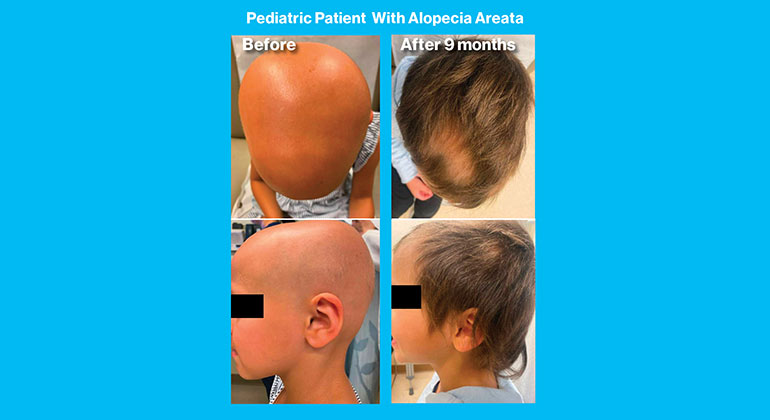
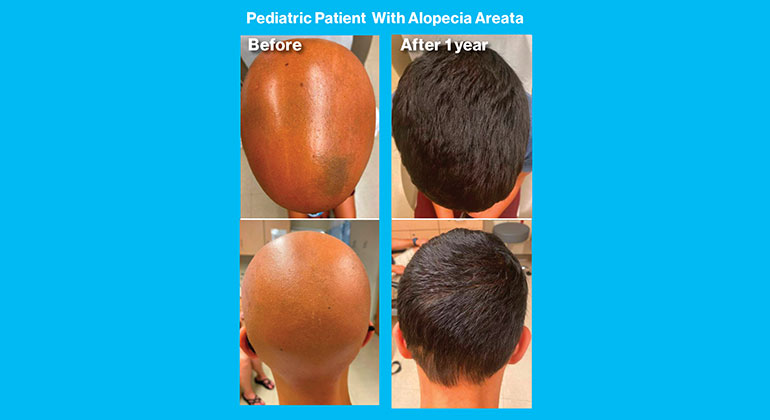
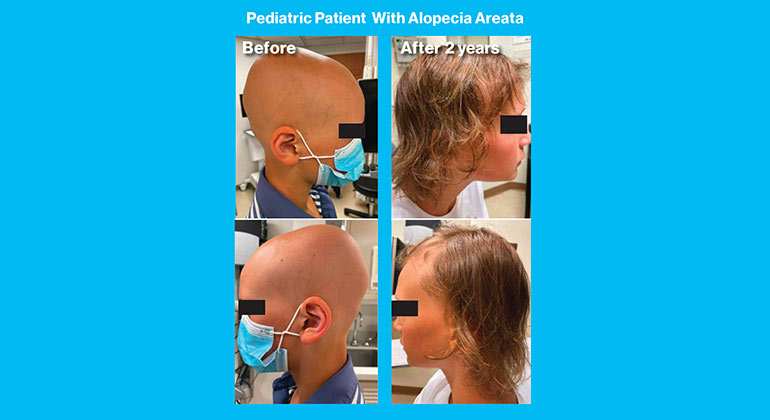
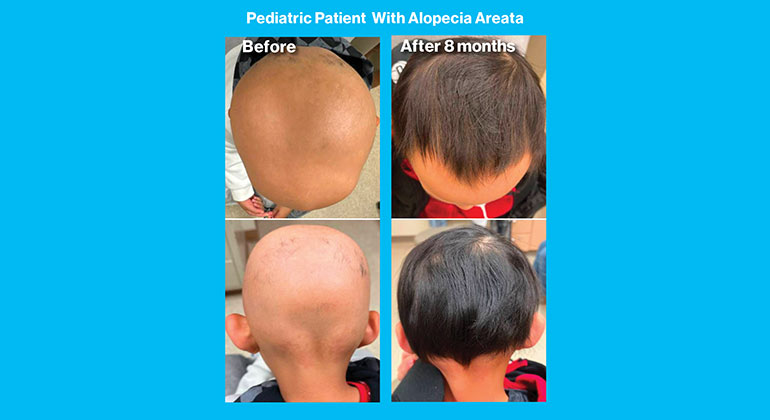
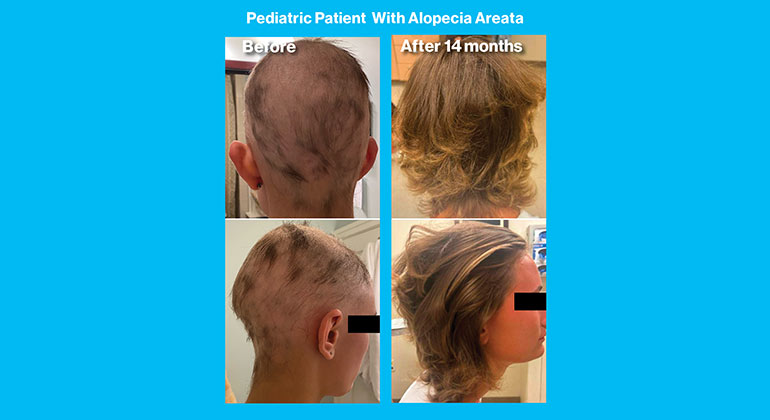
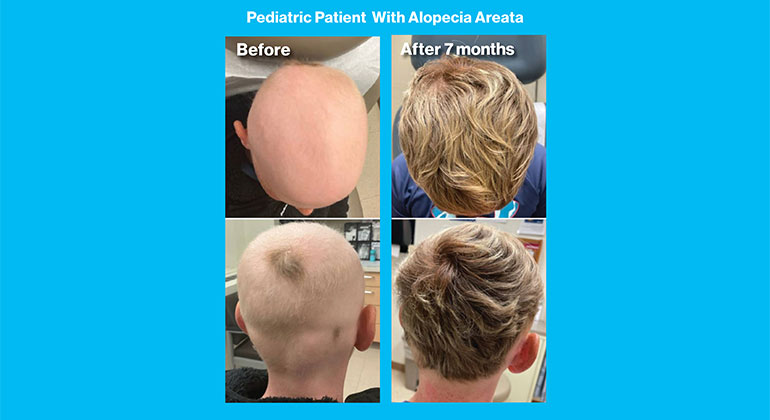
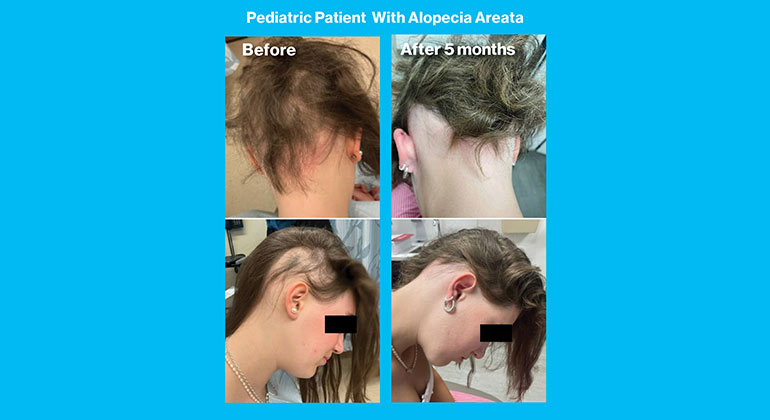

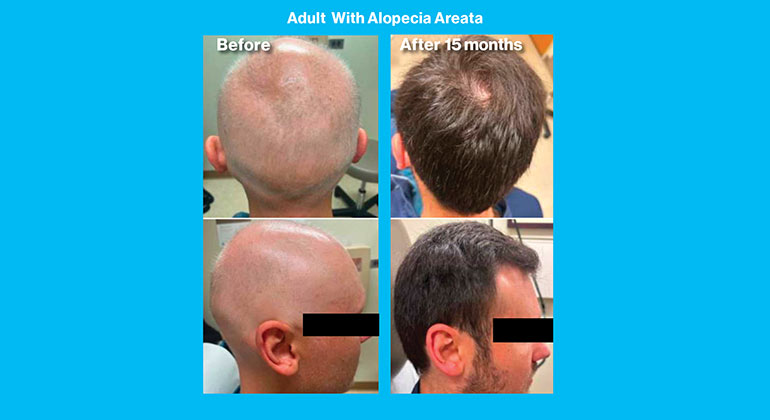
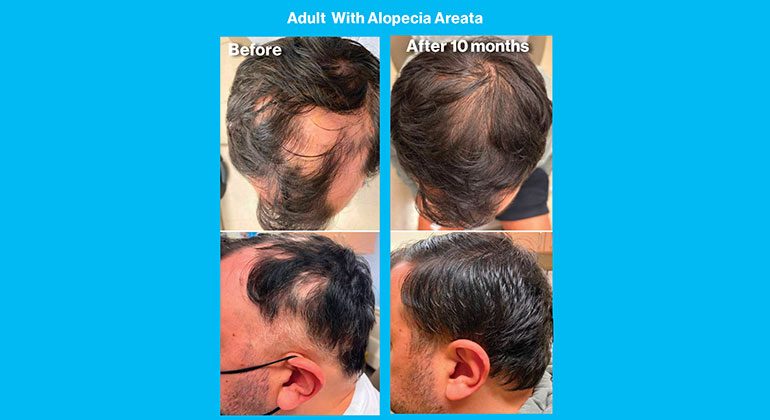
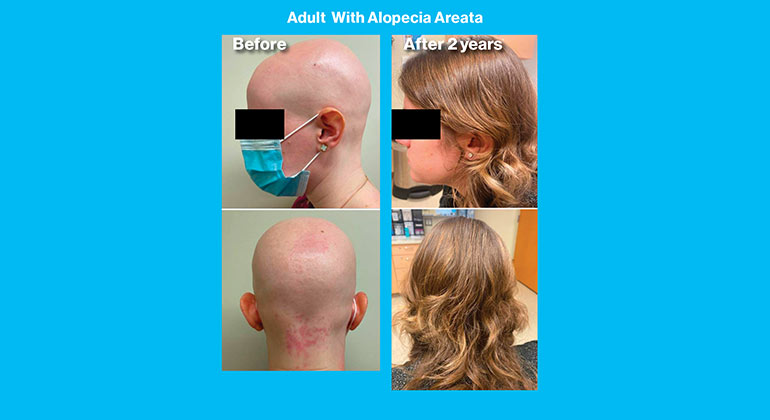
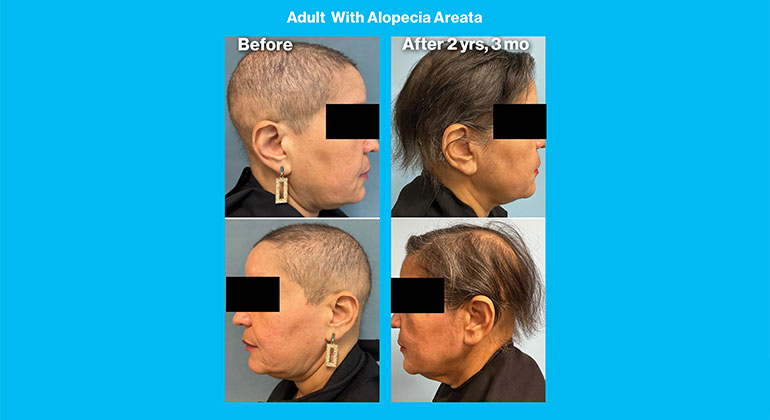
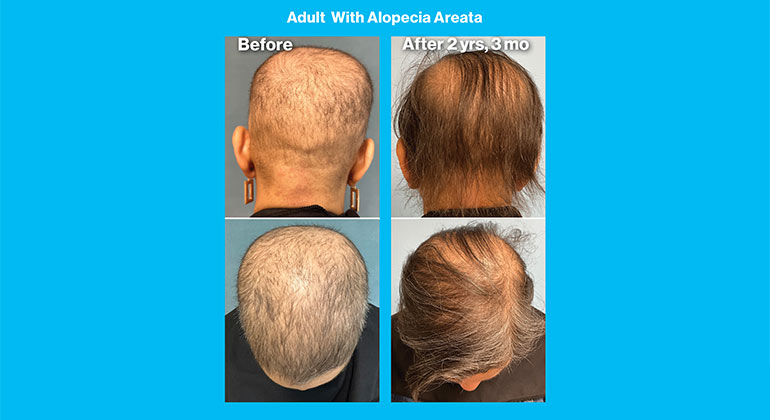
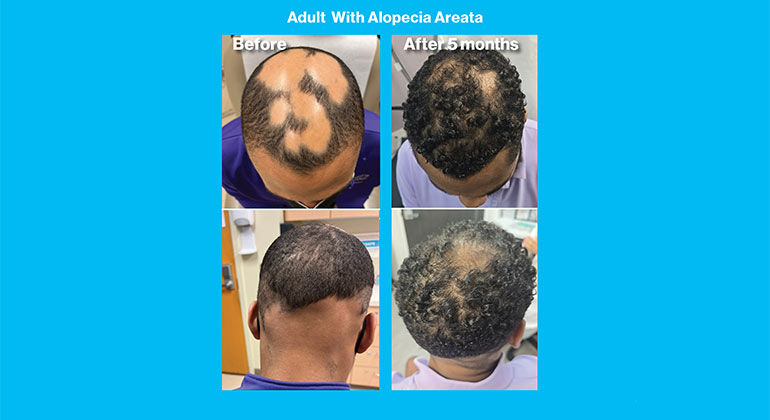
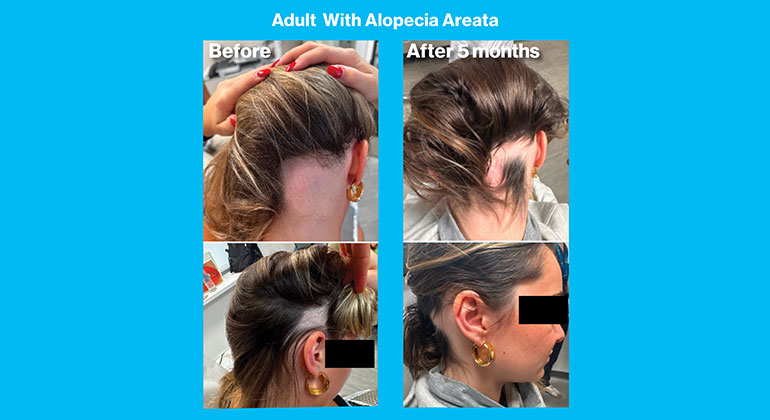
Alopecia areata is an autoimmune condition that causes the immune system to become overactive and attack hair follicles. The condition can run in families. Hair loss may also follow a significant event, such as pregnancy, illness, or trauma. You are more likely to develop alopecia areata if you have a personal or familial history of eczema, asthma, or other allergic diseases.
Symptoms of Alopecia Areata
Alopecia areata typically begins with one or more patches of hair loss, usually on the scalp. It can also appear in other parts of the body, such as the eyebrows, eyelashes, beard, and extremities. The skin where the hair has fallen out may appear round and smooth. You may also have an itching sensation, or notice pitting of the fingernails. In unusual cases, alopecia areata can lead to total hair loss on the scalp or the entire body.
Treatments for Alopecia Areata
Our Alopecia Center of Excellence offers the most advanced treatments available. Our team, directed by Benjamin Ungar, MD, has developed some of the safest, most effective therapies for the disease. For instance, we discovered the role of the type 2 lymphocytes in alopecia areata, which has opened new avenues for research and treatment.
We use a variety of treatment approaches to treat this disease. Some milder cases of alopecia areata get better on their own. More severe cases may require treatment, such as:
- Corticosteroids administered via injection or topically on thinner areas
- Systemic treatments, such as novel biologics, JAK inhibitors, and other novel treatments offered in our clinical trial unit